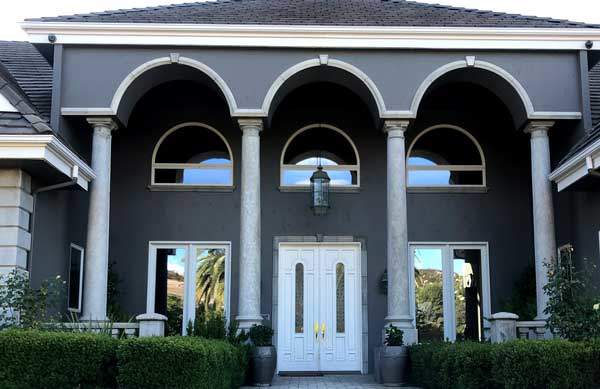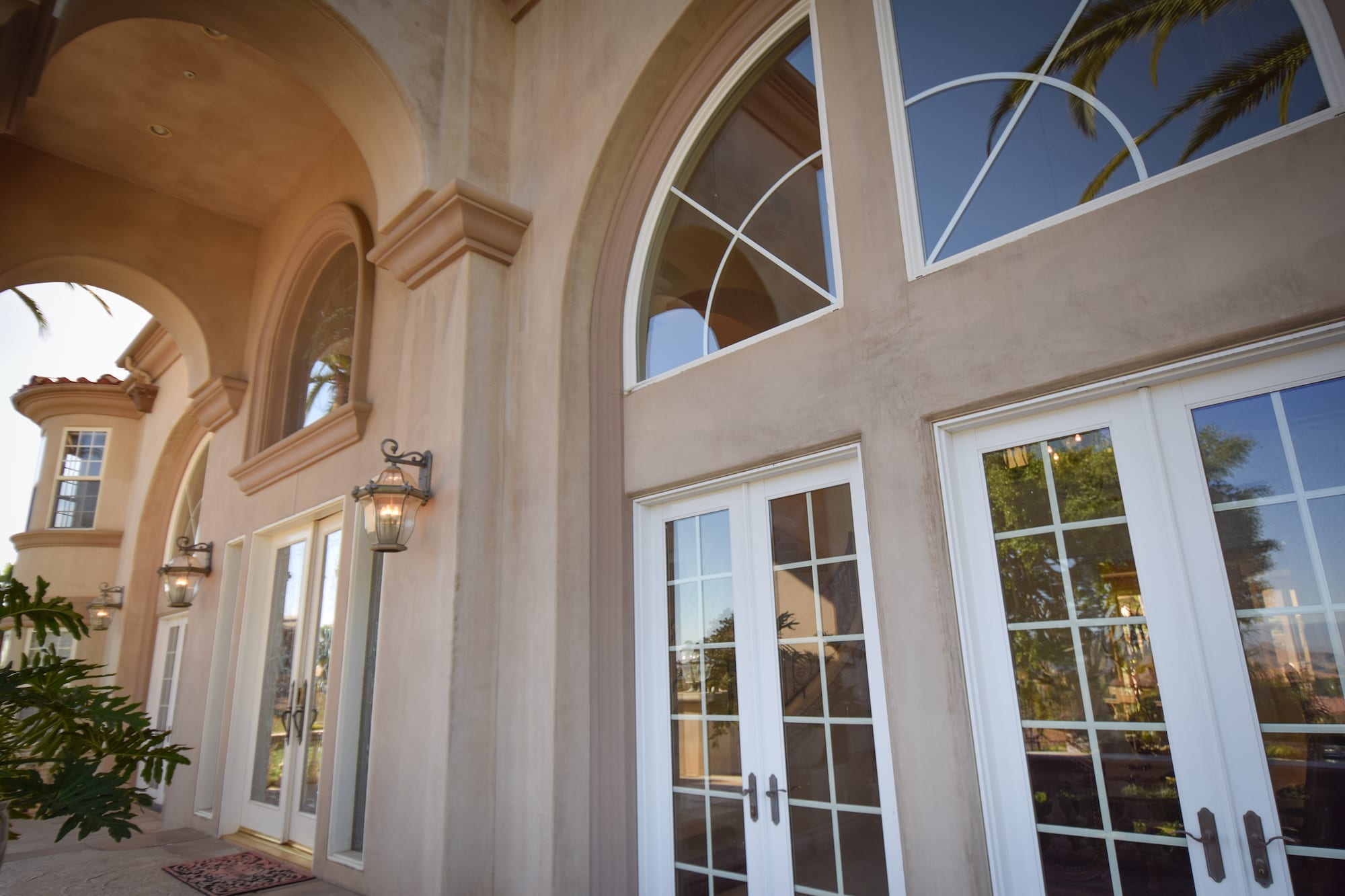Residential Window Tint: The Eco-Friendly Service for Your Home
Residential Window Tint: The Eco-Friendly Service for Your Home
Blog Article
Just How Residential Home Window Tinting Enhances Your Home's Power Effectiveness
Residential home window tinting offers a compelling solution for homeowners looking for to enhance energy effectiveness within their living rooms. By applying specialized films to windows, it effectively decreases heat transfer, consequently stabilizing indoor temperature levels and minimizing the demand for excessive heating or air conditioning.
Understanding Window Tinting
Recognizing home window tinting is vital for property owners seeking to enhance both comfort and power effectiveness in their home. Residential Window Tint. Home window tinting entails the application of a thin movie to the inside or exterior surface of glass home windows. This film can considerably regulate the amount of sunlight and heat that enters a home, hence influencing interior climate conditions
There are different types of home window tinting movies offered, each with unique properties. The effectiveness of home window tinting is usually measured by its Visible Light Transmission (VLT) percent, which indicates exactly how much light can pass with the film.
Advantages of Power Efficiency
Home window tinting not just enhances looks but additionally plays a significant role in enhancing energy efficiency within property areas. By decreasing warmth transfer with home windows, colored movies produce a more stable indoor environment, which can cause substantial reductions in energy consumption for cooling and heating. This power performance converts into reduced energy bills, providing home owners with significant long-term financial savings.

Furthermore, home window tinting boosts the comfort of living rooms. By minimizing glare and obstructing unsafe UV rays, colored home windows produce an even more pleasant atmosphere, which can bring about boosted wellness for owners. The defense against UV rays additionally assists preserve furnishings and flooring from fading, adding to the long life of household products.
How Tinting Functions
Tinting films run with a combination of advanced materials and technologies designed to regulate the amount of solar power going into a home. Primarily composed of polyester, these films often incorporate ceramic or metal fragments that reflect and soak up warm. This double ability permits them to dramatically minimize the infiltration of ultraviolet (UV) rays and infrared radiation while allowing noticeable light to travel through.
The efficiency of window tinting is gauged by its solar warmth gain coefficient (SHGC), which shows just how much solar power is transmitted via the home window. Lower SHGC worths are more effective as they denote better warm denial. Additionally, window colors can include a variety of shades, permitting home owners to tailor their visual preferences while boosting energy performance.
Additionally, these films serve as an obstacle, protecting against warmth loss throughout cooler months by mirroring indoor warmth back into the living area. This thermal insulation effect complements the cooling advantages gotten throughout warmer months, adding to a well balanced indoor environment year-round. By managing solar power successfully, residential window tinting not only improves comfort however likewise plays a vital function in minimizing power consumption and lowering energy expenses.
Picking the Right Color

There are different types of home window films offered, including dyed, metalized, and ceramic. Ceramic movies offer outstanding warmth control without endangering exposure and are very durable, making them a prominent option.
Visible light transmission (VLT) is an additional crucial variable, as it shows the quantity of all-natural light that can pass through the tinted glass. Homeowners ought to choose a color with a VLT that complements their lighting choices while still offering sufficient glow decrease.
In addition, analyzing the solar heat gain coefficient (SHGC) can aid identify how well a color can obstruct warmth from sunlight. A lower SHGC indicates better warm control, inevitably boosting energy performance.
Setup and Maintenance Tips
Correct setup and upkeep are important components in optimizing the benefits my review here of residential window tinting. To accomplish ideal outcomes, it is advisable to work with a qualified professional for installation. This guarantees that the color is used appropriately, avoiding air bubbles, wrinkles, or misalignment that can endanger performance. Specialists also use specialized devices and strategies, which can enhance the resilience and efficiency of the color.
Complying with setup, upkeep is vital to lengthen the life of the window film. It is suggested to wait at the very least 30 days before cleaning up the colored windows to enable the glue to treat totally. When cleaning, link use a soft towel and a gentle, ammonia-free cleaner to avoid harming the movie. Stay clear of unpleasant materials that could scrape the surface.
In addition, routine examinations are advantageous. Look for any type of peeling or bubbling, which can suggest inappropriate setup or use with time - Residential Window Tint. Attending to these issues promptly can stop further damage and keep power performance. By sticking to these setup and maintenance pointers, home owners can guarantee their home window tinting remains to supply significant energy savings and convenience for years ahead.
Verdict
In see this here final thought, residential home window tinting serves as an efficient remedy for improving energy effectiveness within homes. By reducing heat transfer and blocking dangerous UV rays, home window movies add to reduce power usage and boosted interior convenience.
Home window tinting involves the application of a thin film to the inside or outside surface area of glass windows. By reducing warmth transfer via windows, colored movies develop a much more secure interior environment, which can lead to substantial decreases in energy usage for heating and cooling.The performance of window tinting is gauged by its solar heat gain coefficient (SHGC), which shows how much solar power is transmitted with the home window. By handling solar energy successfully, domestic home window tinting not just boosts comfort but additionally plays an important function in lowering energy usage and decreasing utility bills.
By reducing heat transfer and blocking dangerous UV rays, window movies contribute to decrease energy usage and boosted indoor convenience.
Report this page